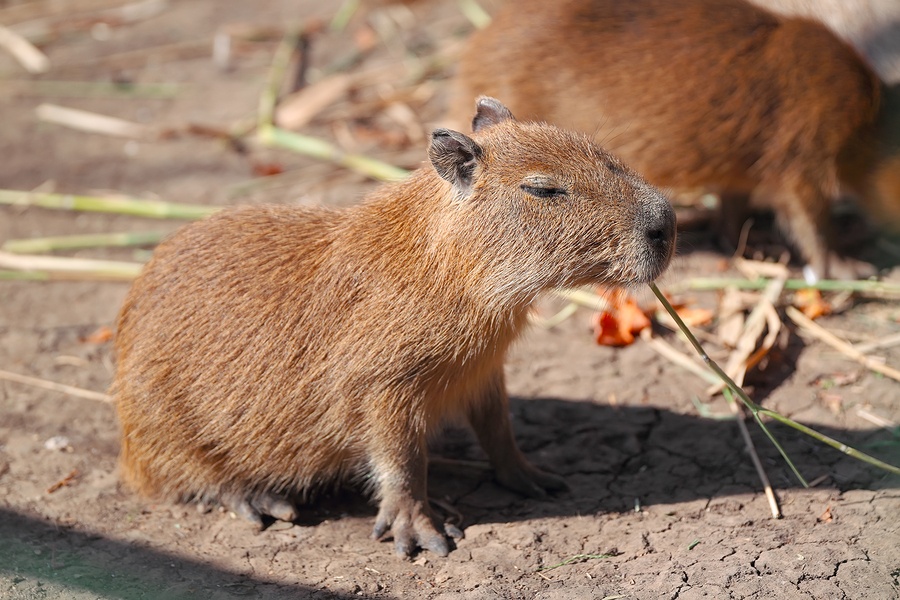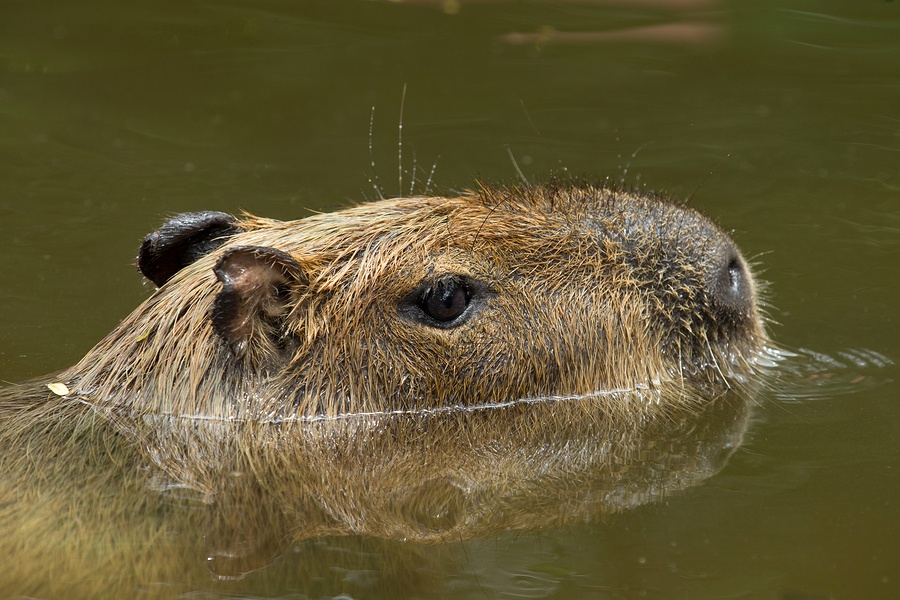Make no mistake; people who decide to keep capybaras as pets are willing to make a lot of modifications to their homes; and lives to accommodate these giant rodents.
If you search online you’ll find stories from capybara owners who have installed extra toilets; into which they dump the approximately one gallon / 3.78 liters of feces their pet produces each day.
But rather than talking about these and other experiences with frustration, the tone is more one of resigned affection. Clearly people who have capybaras as pets love them; and do these and other things quite willingly to create a good atmosphere for their beloved animal companions.
The following discussion assumes; for the most part, that you will be keeping at least a pair of capybaras in an outside setting.
Like all animals, capybaras will benefit in every possible way from good husbandry practices. When they receive high quality nutrition and are kept in spacious, clean habitats; they are hardy animals with few health problems.
This provision for health does not just extend to physical issues, however, it also includes their psychological wellbeing; which is predicated on an understanding of their innate herd mentality.



 Author and long-time animal lover. Sharing knowledge on pet care through experience and the written word.
Author and long-time animal lover. Sharing knowledge on pet care through experience and the written word.